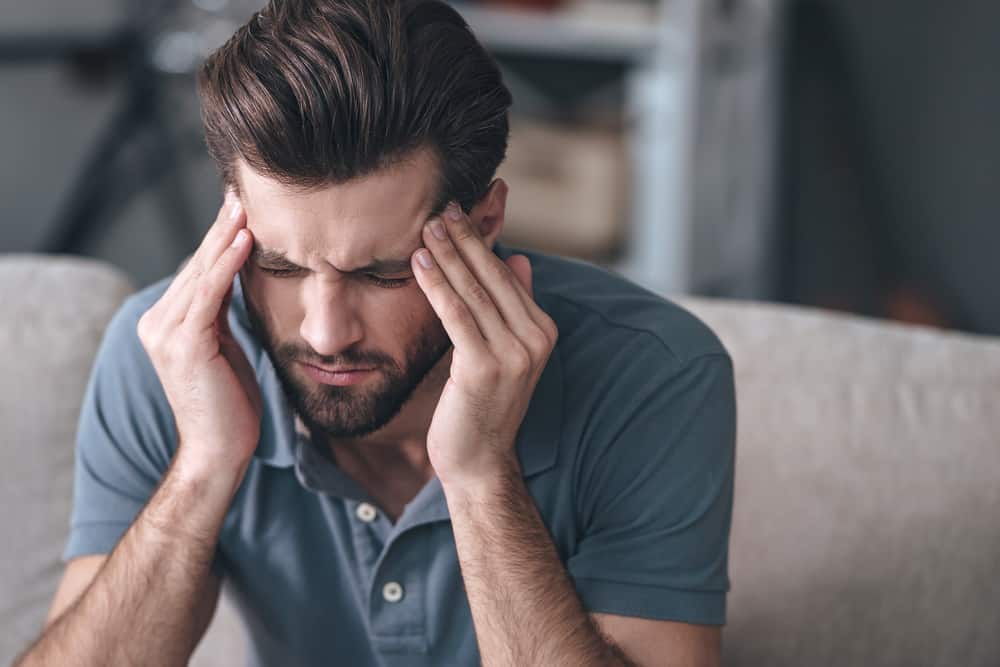Headaches are very common after a car accident because of how often your head and neck are affected. Even if you were in a small fender-bender, it is likely that the force of impact caused your body to jolt forward or backward in some way. Because your head and neck are not restrained while you are driving, there is more risk of injury. A small accident may not seem like a big deal, but if you have a headache after a car accident then your body has been negatively impacted. The most common car accident injury and cause for constant headaches is called whiplash.
How Whiplash Can Cause Headaches
Whiplash injury occurs when the force of the accident causes your head to snap forward and backward really aggressively. This can affect both the bones and muscles in your neck and cause headaches. The bones in your neck are affected by whiplash because the vertebrae in your spine can shift slightly out of place. The muscles that support your neck and spine can also strain out of their normal range of motion and these sore muscles can cause headaches. When muscles are strained or torn, they can become inflamed. Inflammation is a medical way of saying you are experiencing swelling in the area, and swelling in your neck can also lead to headaches.
Other Symptoms of Whiplash
Constant or intermittent headaches are a common symptom for whiplash. Other signs and symptoms of whiplash include pain in your neck, upper back, and shoulders, stiffness in your neck, and difficulty in moving or turning your head. The tricky thing about whiplash is that symptoms don’t always show up right after the car accident. It can take hours and even days for you to experience symptoms of whiplash. That is because your body’s response to the accident can sometimes lead to shock, which can distract you from feeling the extent of your injuries. When you’ve been in a car accident, adrenaline is likely also coursing through your body, which also masks pain symptoms at first.
When your muscles are affected by whiplash, the inflammation can come on slowly and cause a gradual increase in pain symptoms. That’s because when your muscles are swollen they can actually put unnecessary pressure on other parts of your neck and back, causing more pain. When the swelling starts to go down, you might begin to notice other symptoms or injuries that were initially masked by the swelling as well. Stiffness in your neck can sometimes feel even worse the day after an accident because your muscles are really feeling the full extent of the injuries.
Diagnosing Whiplash
It is actually tricky to diagnose whiplash because there isn’t one specific identifying factor that shows up on an X-ray or an MRI. However, the combination of your symptoms and the use of diagnostic imaging tools can help the doctor confirm or rule out a whiplash diagnosis. The symptoms of whiplash are common for most patients, so your doctor will want to know more about what type of pain and discomfort you have been feeling and where it is located. Diagnostic imaging tools like an X-ray will show your doctor how the vertebrae in your spine may have been affected by the car accident. An MRI would show more details of how your muscles, tendons, and other soft tissues were affected. Your doctor will likely also examine your neck and test the range of motion and tenderness in your neck.
Treatment for Whiplash
At-Home Treatments
For mild cases of whiplash, your doctor may be able to recommend at-home headache treatments that are safe and effective. At-home treatments generally include a combination of over the counter pain medications, cold and hot therapies, and even gentle exercises and stretches. Pain medications can significantly help with reducing pain from headaches after a whiplash diagnosis. When you first experience swelling in your neck, applying cold compresses or even a bag of freezer peas to your neck can help reduce the swelling and give you temporary pain relief. Alternating with heat therapy can help encourage blood flow in the area and also lead to pain relief. Exercises and stretches can help gently restore range of motion in your neck and back while also keeping your muscles warm and flexible.
Treatment by Car Accident Doctors
In more moderate and severe cases of whiplash, car accident doctors will help provide you with the best course of treatment for your headache after a car accident. Constant headaches can really impact your daily life and keep you from participating in the normal activities you enjoy. Car accident doctors are very skilled and knowledgeable about whiplash the headaches and other pain symptoms it causes. A multi-specialty team of orthopedic specialists, chiropractors, and physical therapists can help develop a treatment plan that will control your pain, restore your range of motion, and resolve your constant headaches.





